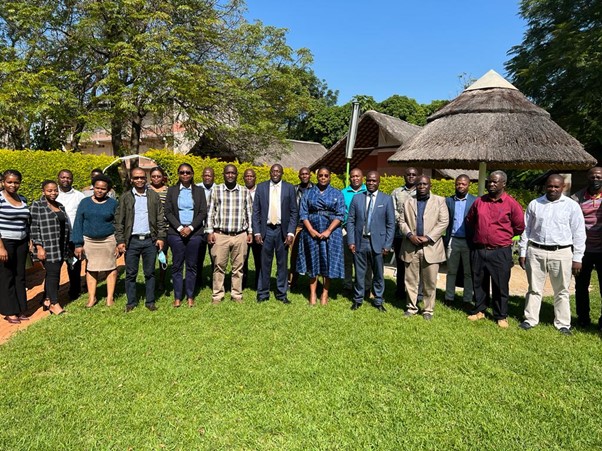
The African Agricultural Technology Foundation (AATF) in collaboration with the Government of Eswatini and key partners convened a national conference to validate the findings of a research conducted to estimate the impact of climate change in the vegetable sector.
The Principal Secretary in the Ministry of Agriculture, Mrs Gugu Shabangu, said vegetable production was an important component of Eswatini’s agricultural system, contributing to the nation’s food and nutrition security, revenue generation and employment creation, particularly in the rural areas.
Mrs Shabangu said the government would continue supporting the creation of a progressive policy environment to address the impacts of climate change in agriculture. This would also include reviewing policies, laws and regulations to match the country’s emerging agricultural sector needs.
“As government, we have put in place strategies and measures to reduce the levels of poverty among farming communities through the adoption of modern climate-smart farming techniques to improve productivity,” she said.
Mrs Shabangu spoke during the validation workshop of studies conducted in Eswatini focusing on the impact of climate change on vegetable production among smallholder vegetable farmers in LUSIP (Lower Usuthu Smallholder Irrigation Project) I&II and MNWAP (Mkondvo-Ngwavuma Water Augmentation Project) projects sites held on May 3, 2022, at Esibayeni hotel in Eswatini.
Also present was the Director of Agriculture at the Ministry of Agriculture Dr Daniel Dladla, the Agriculture Development Manager for Eswatini Water and Agricultural Development Enterprise (Eswade) Mr Zwelethu Dlamini and Mr Clement Magagula of the National Agriculture Marketing Board.
Dr Leander Melomey, the project team leader, presented findings of the study and emphasised the need to deploy a scientific coordination unit which will translate scientific information into languages that farmers can understand.
On the use of digital tools to make farmers more resilient to climate change, George Marechera, the AATF Agri-Business Development Manager, called for targeted messaging to help farmers understand trends. He proposed that digital-savvy peer-leaders and champions be appointed and empowered to interpret and share information with farmers.
“For the digital solutions such mobile phones to work in making farmers resilient to the impact of climate change, there is need to build and regain farmer trust. Farmers do not trust the people who are handling their information as they are afraid that it will fall into government hands and might work against them in the future such through taxation,” said Marechera.
AATF’s Seeds2b project Coordinator David Tarus highlighted the need for the formation of an Eswatini vegetable sector forum to provide a platform to discuss emerging issues such as drought, market access and prices among others.
The stakeholders called for harmony in activities in the vegetable value chain, saying everyone should be on board to help address the constraints.
Some of the challenges include drought, floods, emerging pests, diseases and erratic rainfall patterns.






















































































